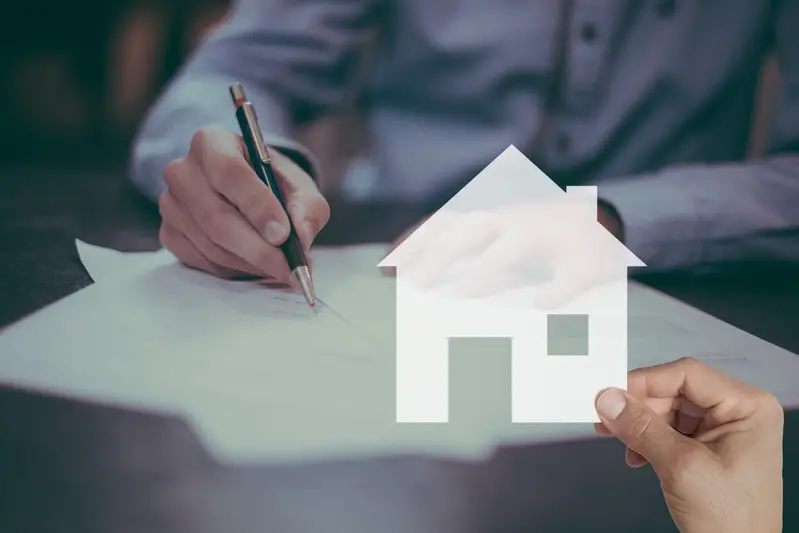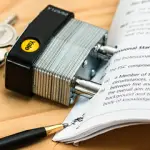
It’s never a good place to be when you have what appears to be a mountain of debt and you’re struggling to keep up with loan repayments. Or it might be you can afford your loan payments, but you’re fed up with having so much debt and you simply want it gone for good. Either of which has lead you to ask the question; “should I sell my home to get out of debt?”
If you need help calculating how much equity or negative equity you have, and if you’re not too sure which debts to pay off when you sell your house, below is a handy calculator tool to help you make this decision. It’s called the “Sell Your Home To Get Out Of Debt Calculator“, which is immediately after the following examples.
Is it wise to sell house to pay off debt?
It’s not always wise to sell your home to get out of debt, but you should immediately start to manage your finances, cut up your credit cards and control your spending. Selling your house to pay off debt should be your last resort, as there are other ways to reduce debt without selling your home.
Part of my approach to this article is to describe a few scenarios with my thoughts on the best approach. But bear in mind when you read this article that it won’t include all possible scenarios, so if your situation is different to any I describe, please submit your story below in the comments, or better still seek professional advice.
Please also read this article to discover how you could save £71,475 on your next mortgage if you sell your house and rent before buying again. Even I was amazed when I did the calculations! The strategies you learn in this article will not only save you money, but it will also reduce the stress of buying your next house.
What happens to your debt when you sell your house?
When you sell your house any debt like a mortgage that is secured on the property will be repaid out of the funds received from your buyer. But debt not secured on your house will not necessarily be repaid from the proceeds, unless you choose to repay it.
Debt scenarios – Should You Sell Your Home To Get Out Of Debt
Debt scenario #1
Husband and wife Mr and Mrs Leeds own a 2-bedromm house worth £235,000 and have a mortgage of £145,000. They also have a bank loan of £15,000 they used to consolidate credit card debts, but they’ve since run up further credit card debts of £11,600. They want to move to a 3-bedroom home as they have another kid on the way. Mr and Mrs Leeds are not sure if they should use some of their equity to repay their debts of £26,600, or use the whole amount to secure the new house. They’ve found a new house they like that’s on the market for £275,000, and they have a mortgage in principle for £195,000.
If the Leeds used their equity to repay their bank loan and credit card debt off in full, this would leave them with equity for a deposit of £54,880. If you add the balance of their equity to the amount they can borrow of £195,000 on a mortgage, they can afford a new house for £249,880. Which may or may not be possible, but if you would like to see how they could save money on their next house purchase, please read this article to discover how they could save £71,475 on their next mortgage.
The alternative to selling their home to get out of debt
- Mr and Mrs Leeds have equity of £90,000, but that’s without considering legal fees, estate agent commissions, buying costs, removal costs and Stamp Duty on the new house.
- If we assume that buying and selling legal fees will be £1,800, estate agent commission will be £2,820, removal costs are going to be £750 and Stamp Duty will be £3,750. The total costs associated with the move amount to £9,120, which leaves £80,880 equity as a deposit on the new house, assuming they use the full amount of equity.
- If they add the balance of equity of £80,880 with their mortgage in principle of £195,000, this gives The Leeds £275,880 to spend on their new house.
- If they pay full asking price of £275,000, they’d be left with £880. But if they were able to negotiate a 5% discount off the listed price, they’d only pay £261,250, which would leave £14,630 to pay off some of their other debts.
- The Leeds should put some of the funds in the bank for a rainy day. This is just in case something goes wrong with the new house, for example, the gas boiler could break down. I suggest they use £10,000 of the £14,630 to repay part of the bank loan and keep the balance of £4,630 in a deposit account for a rainy day.
- I then suggest the Leeds should transfer their credit card debt to a 0% credit card, but try to repay this within the interest free period, which can often be for up to 36 months. If the Leeds were able to find a 0% credit card for 36 months, their monthly repayments would be £322.22 per month.
- If £322.22 is not affordable to the Leeds, they should pay what they can afford. They should try to make payments in excess of the minimum credit card repayment, and at the end of the 0% term, transfer what is left to another 0% term until the whole amount is paid off. Each time they make a transfer this will cost them a transfer fee, but the transfer fee will be lower than the standard rate of interest on a credit card.
- The Leeds should use the money saved on the loan payments together with the interest saved on their credit cards to pay down the balance of the loan and the credit card. However, it’s likely that even with paying down a lump on the bank loan, the monthly repayments will remain the same. But once the loan is repaid in full, switch this amount no longer being paid to for the bank loan to pay down the credit cards quicker.
- The Leeds are advised to always pay down the debt that has the highest interest rate, which on the assumption they are able to switch their credit card debt to 0%, will be the bank loan. However, if any part of the credit card debt remains outstanding, or if the Leeds are not able to switch the credit card debt to 0%, they should pay the credit card debt off first.
- If they wanted to buy the house they’ve found, this would mean putting forward a slightly cheeky offer of £250,000 (assuming they can afford the extra £120 shortfall), which means a discount off asking price of 9.1%. If Mr and Mrs Leeds were cash buyers, they may be able to get at least a 10% discount. This would also leave them with no money set aside for a rainy day. If you would like to see how you could save money on your next house purchase, please read this article to discover how you could save £71,475 on your next mortgage.
- The Leeds should also cut up their credit cards, but they shouldn’t cancel all of them as keeping credit cards will help with keeping a good credit rating.
Debt scenario #2
Mr and Mrs Smith live in a home that’s worth £300,000 with a mortgage of £204,000. Their monthly mortgage payments are £1,185 per month on a repayment mortgage. They have credit card debts of £27,000, which keeps increasing as they can’t afford their monthly outgoings, with monthly payments of £810. In addition they have a bank loan they took out to consolidate their credit card balances, with a remaining balance of £10,000 and a monthly repayment of £320. Their net take-home between them is £2,675 per month and their other outgoings are £750 per month.
This means that Mr and Mrs Smith are spending more than they earn each month by £390 every month, which has led them to think they should sell their home to get out of debt. But then Mr and Mrs Smith have an alternative option.
The alternative to selling their home to get out of debt
The Smith’s alternative to selling their house would be to remortgage their home to an interest only buy to let mortgage and rent their house to tenants. They have spoken to an agent and the agent has confirmed the monthly rent would be £1,100, and their management fee would be £120 per month. Other monthly costs are estimated to be £180 per month, which would leave a net income of £800 per month before interest. They have spoken with a mortgage broker who has confirmed they can get a buy to let mortgage at 75% loan to value, which would be a loan of £225,000 at a rate of 2.5% interest. This equates to monthly interest of £469.
If the Smiths rent their own home, they will need to rent somewhere else to live, and on the basis their house can be rented for £1,100 per month, this would be the same.
From the remortgage, the Smiths will have a net pay out from their property of £21,000, which is the difference between their existing mortgage of £204,000 and the new mortgage of £225,000. If their remortgage costs are £1,500, they’d be left with £19,500. On the basis the Smiths use the funds to repay the bank loan in full, they save the £320 per month, and if they pay £5,000 off the credit card debt, their new credit card payments would be £660.
Another suggestion is that the Smiths transfer as much as possible of their credit card debt to 0% interest, which will save a huge amount of credit card interest. At the same time, they should fix the monthly credit card payment at £660 per month too.
This information is best represented in a table, but it shows that instead of having a net deficit each month, the Smiths now have a net excess each month of £496. Plus they have £4,500 set aside for a rainy day, although they will need to use around £1,100 of this as their rent deposit.
Before And After To Get Out Of Debt
| Sell Home To Pay off Debt | Remortgage On Buy To Let Mortgage | |
|---|---|---|
| Net take-home pay | 2,675 | £2,675 |
| Mortgage | (1,185) | (469) |
| Net rental income | 0 | 800 |
| Other monthly costs | (750) | (750) |
| Credit card payments | (810) | (660) |
| Bank loan payments | (320) | 0 |
| Rent for new home | 0 | (1,100) |
| __________ | __________ | |
| Net (deficit)/excess | (390) | 496 |
| __________ | __________ |
Things for the Smiths to consider:
- Interest rates may increase in the future. But having said that, so may rents.
- The mortgage on their property is now an interest only loan, which means the outstanding loan is not being paid down.
- They have to decide if they want to become landlords.
- By keeping their property, they have the benefit of enjoying the benefits of house price rises, for example, if over a 5 year period house prices increase by 15%, their property value has increased by £45,000. This is an increase the Smiths would not benefit from had they sold their house to pay off their debts. Assuming their house is now worth £345,000, the mortgage is still the same and their equity is now worth £120,000.
- They could use all or part of the monthly excess of £496 to over-pay their buy to let mortgage. If they have been using say £350 of the excess to pay down their mortgage for the last 5 years, their outstanding mortgage would be 204,000, which gets them back to where they were before they started. However, they no longer have a bank loan, and their credit card debt would have been completely paid off.
- Once the credit cards are paid off, as well as the credit card debt, their net excess income is now £806, assuming they continue to over-pay their mortgage by £350 per month. The extra £806 per month could be use for holidays and to over pay their mortgage by more than £350.
- They should definately cut up their credit cards, but they shouldn’t cancel all of them as keeping credit cards will help with keeping a good credit rating.
Debt scenario #3
Tom and Samantha owe £31,500 of credit card debt and have a similar amount of equity in a flat they own. They are thinking about selling up and starting afresh, as they don’t particularly like living in the flat in any event. Their flat is worth £150,000 and their mortgage is £119,800 and is on a repayment mortgage with an interest rate of 1.25% and the payments are 495 per month. They are both happy to rent for a while and certain they’ be able to save for a deposit for the future, as they are already using their spare cash to repay their debt by up to £900 per month.
Should Tom and Samantha sell their home to get out of debt?
The important difference with Tom and Sam is they don’t like where they live, so it might actually be a good idea to sell up and pay off their debts. With the fact they can afford to pay £900 off their debts each month, they could use this to save up a deposit for their next home.
Having said that, it’s possible their rent will be higher than their current mortgage, but with a bit of luck with the amount they save on debt payments this should be enough to cover the extra amount rent costs.
They should definitely cut up their credit cards, but they shouldn’t cancel all of them as keeping credit cards will help with keeping a good credit rating. But this will stop them getting carried away with spending and running up debt once more.
Sell your home to get out of debt calculator
Please note: This getting out of debt calculator is offered for the purpose of estimation only. The costs included in the calculator may not include all costs associated with selling your property, so there are no guarantees that all possible costs have been included. This selling your home to get out of debt calculator does not replace professional estimates.
What you should consider if you sell your house to pay off debts
If you sell your house to pay off debts and don’t have enough equity left to buy another home, you’ll have to rent a house. You will no longer be on the property ladder, which for some is a big deal. Coming off the property market means you’ll no longer gain when house prices increase. But on the other hand, you won’t have to worry if house prices fall either.
As a tenant, there are pros and cons of renting, which include cons that the home is never yours, and you have to get permission to do anything to their property. Landlords often don’t let tenants have pets and could decide to end the tenancy at any moment and give notice.
On the positive side, you have no responsibility for the property, which means if anything goes wrong like a broken boiler or leaking taps, this is down to the landlord.
Another positive of selling up and paying off debts, assuming you still have enough equity left for a deposit, is you can buy quickly as you have nothing to sell. You will be an attractive buyer and you’re more likely to get away with a cheeky offer on your next property.
There is also something to be said for not having to live frugally whilst paying off debt, but instead sell the house and pay off the whole amount so you can live a more free life. So long as you are happy with renting.
You should also take a read of this article: Are You Thinking Of Selling Your House And Renting Instead? (Pros & Cons). This article includes all the advantages and disadvantages of selling a house and renting instead.
Is downsizing a good idea to pay off debt?
Downsizing is an alternative to selling your home to getting out of debt. But if you downsize, you need to ask the following questions:
- Will downsizing clear all your debt?
- Will remaining debt be more manageable?
- Will the smaller house be big enough for you and your family to live in?
- Make sure you don’t fall into the debt trap again.
- Seek help.
Other options to selling your home to get out of debt
- Reduce your outgoings and look at what expenses you could cut down.
- Increase your income by getting another job or a side hustle.
- Take out a consolidation loan, but be cautious with this option and see professional advice.
- Sell other assets and items around your home.
Final thoughts about about should you sell your home to get out of debt
If instead of selling your house to get out of debt, you sell other assets, make sure you get the permission of any joint owners before selling the asset. But selling other items you have around the house can sometimes provide more cash than you think.
For example, we no longer used our kayak, as it was too heavy for my wife to lift it on top of our car, so I decided to sell it. I thought I’d get around £100, but in the end I sold it for £550.
But whatever you do, make sure you don’t bury your head in the sand and one thing you must never do is to walk away from your property and hand back the keys to the mortgage lender. There’s always another option, and quite literally, you could sell your home on an option if you speak to us – read more about this here: Are Lease Options Legal In The UK (Will A Lease Option Help Sell My Home)
Don’t let your house be repossessed, as in most cases the proceeds lenders receive when they often sell homes at auction are lower. The net amount they receive may not even cover the debt and you will still have to repay balance.
If your scenario is worse than the examples I explained in this article, be care you don’t make yourself deliberately homeless. If you are hoping to get a council house, if you deliberately make yourself homeless you probably won’t get a council house. But you can also get a council house if you own a property too, if your circumstances warrant this solution.
Please don’t forget to read this before you leave…
Please don’t forget to also read this article to discover how you could save £71,475 on your next mortgage if you sell your house and rent before buying again. As I said earlier, even I was amazed when I did the calculations! Learn about how you will reduce the stress of moving house, whilst at the same time potentially save thousands in the process!
I hope you’ve enjoyed this article about should you sell your home to get out of debt
f you’ve enjoyed this article about “ should you sell your home to get out of debt ” please share it on your favourite social media site.
Also, if you have any questions, please feel free to comment below too. Please also share any of your experiences with properties you’ve bought. Alternatively, if you need more help, please feel free to contact us on our contact us page here. Or join the discussion and ask your question in the property forum.




